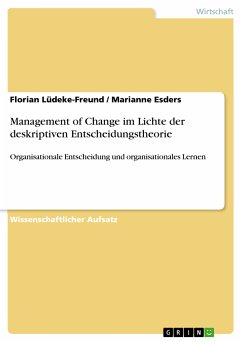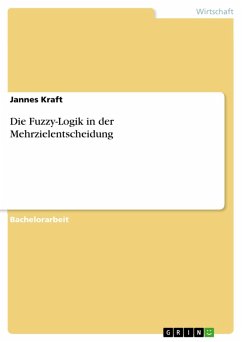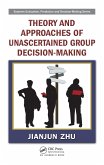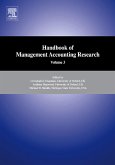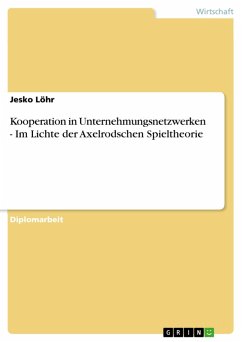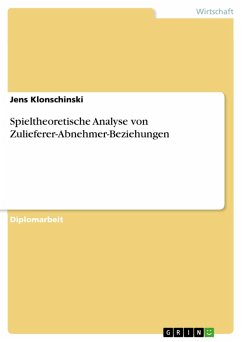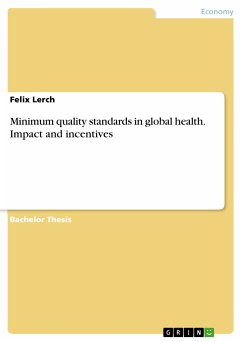Studienarbeit aus dem Jahr 2004 im Fachbereich BWL - Allgemeines, Note: 1,3, Universität Lüneburg (Institut für Betriebswirtschaftslehre, Entscheidung und Organisation), Veranstaltung: Seminar zur Spieltheorie, Sprache: Deutsch, Abstract: In the first chapters (1 and 2) the basics of decision and game theory are described in¬cluding a specification of several forms of uncertainty (in a broad sense). On this funda¬ment the circumstances of using probability and statistics related to uncertain decision making are marked out. Chapter three introduces Fuzzyness in general and especially the theory of fuzzy sets (Fuzzy Set Theory); the intention is to separate the cases of uncer¬tainty from those suffering from fuzzyness. Both stand for inconveniences in the context of decision making (and so in strategic game situations, too). For both problems (uncertainty, fuzzyness) theories are capable of helping to keep decision making rational. The interest¬ing fact is, in the context of decision making the handling of uncertainty is already stan¬dardised while the use of Fuzzy Set Theory still seems be something exotic. Despite the fact, that fuzzyness is an obstacle for rational decision making as uncertainty is. In the second part of this work (including chapters 4 and 5), the most common Fuzzy Operators are presented and it is described how they work and how they can affect players' decision-making processes. The main emphasis of our performance is on the dis¬junction and conjunction of two fuzzy sets. Furthermore a fuzzy model within the frame¬work of fuzzy control is described, which can be built and used without mathematical know how - a model getting sharp input values, processes them to fuzzy dimensions and recre¬ates useful sharp output values in the end. Especially, we will try to substantiate with sim¬ple examples and uncomplicated illustrations and diagrams.
Dieser Download kann aus rechtlichen Gründen nur mit Rechnungsadresse in A, B, BG, CY, CZ, D, DK, EW, E, FIN, F, GR, HR, H, IRL, I, LT, L, LR, M, NL, PL, P, R, S, SLO, SK ausgeliefert werden.



